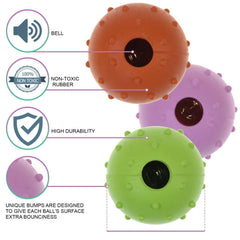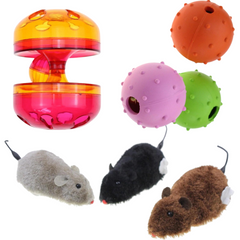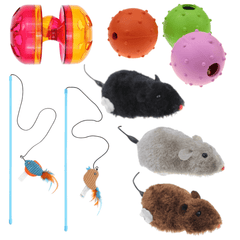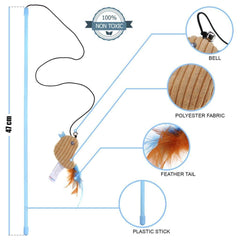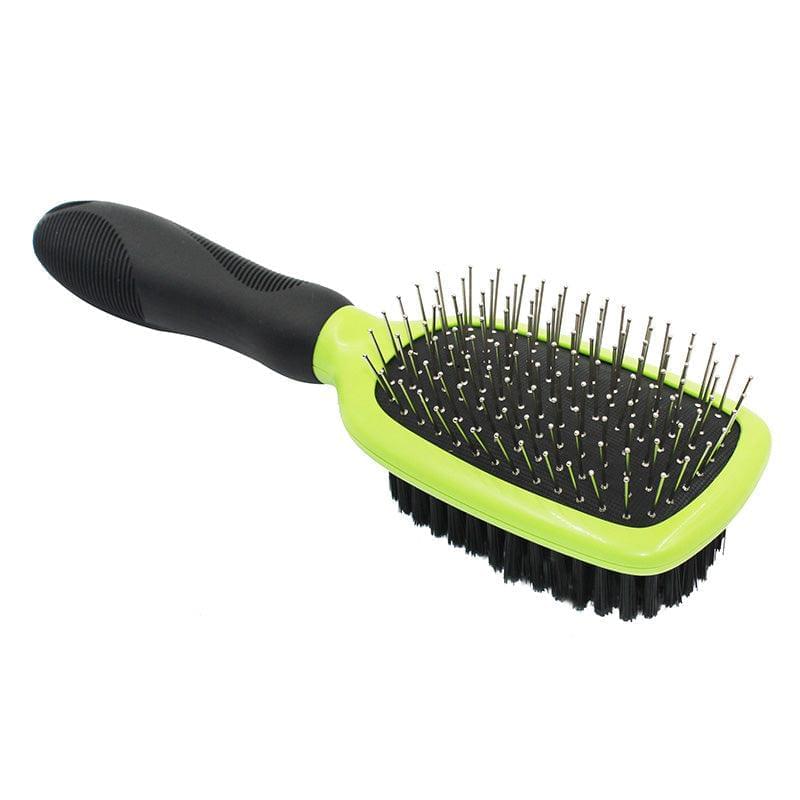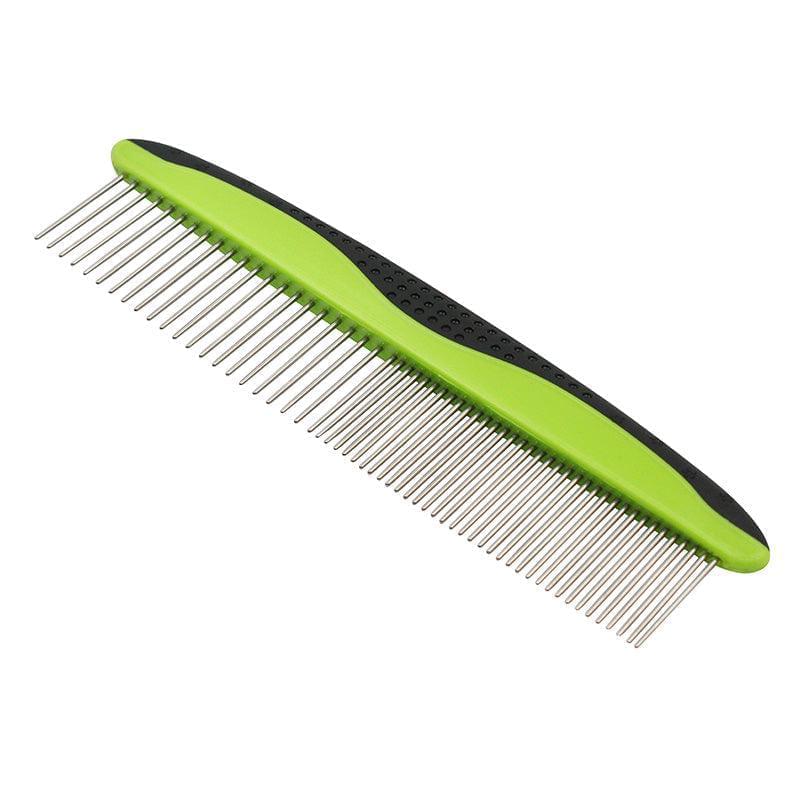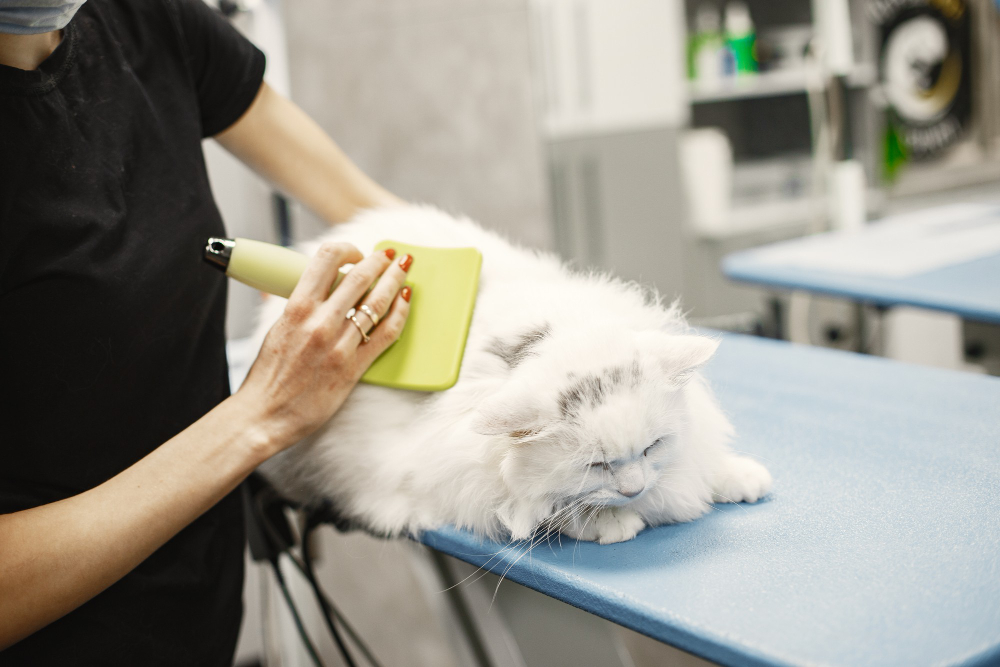
Did you know cats spend 30 to 50 percent of their day grooming themselves? This is why they are often considered 'self-cleaning' pets.
While cats have impeccable grooming skills, professionals still advise you to brush your cat periodically, as it has several advantages.
One or two brushings per week will help kitty to keep her healthy glow—and you'll find that regular sessions are especially beneficial when your cat ages and is no longer able to groom so meticulously on her own. Before brushing, check out the condition of your kitty's coat.
In this blog post, we will cover the importance of brushing your cat and the things you should consider while you do so. Most importantly, we will discuss how often you should brush your feline friend.
So, you must be wondering if brushing your cat is necessary or how often you should brush it.
If yes, then look no further. We got you covered!
Why Is It Important For Cats To Be Brushed?
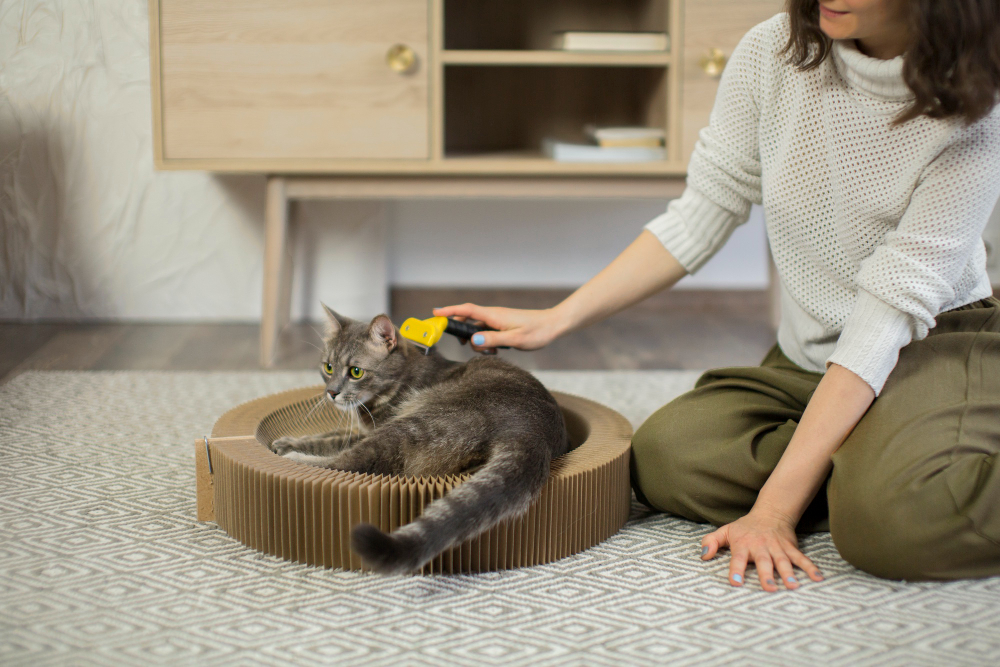
If you are a cat parent, you know how important it is to take care of a kitten. And brushing is part of it.
Let's dig right in and find out the hype of brushing your cat and why you must do it too.
1) Reduces Hairballs
A hairball is a ball of fur that gets collected in a cat's stomach. This happens when a cat licks itself while grooming.
When brushing your cat, you remove all the loose and dead hair from its coat. Thus, the less dead hair left on a cat's coat, the lesser the chances are of hairballs forming in your cat's stomach.
2) Prevent Matting
Matting is a condition that usually occurs in long-haired cats, when the fur becomes tangled and knotted. It primarily happens because the hair shed from the undercoat gets entangled in the top coat.
It also occurs if your cat's fur gets dirty or oily. Matting is very dangerous as it prevents air and water from reaching the cat's skin, causing skin problems and, in extreme cases, even death.
But all of this is evitable with regular brushing sessions that would get rid of loose hair and dissolve any new mats in the making.
3) Bonding Session
The act of grooming your cat is good for their physical well-being and also for your relationship with them.
Busy pet owners can significantly benefit from this. Your cat will appreciate and enjoy the attention shown to them when you groom them. Plus, it will also give you a chance to unwind and spend some time with your cat without the interruptions of everyday life.
Cats also suffer from mental health problems when ignored for an extended period. So, if you haven't been able to spend much time with your cat lately, grab a brush and get brushing!
4) More Brushing, Less Shedding
Are you sick of being covered in cat hair everywhere you go? Are you concerned that you or your kids might develop breathing problems? Well, brushing might help you combat all your shedding excess hair-related issues.
Regularly brushing your cat's body can help reduce shedding--i.e. a common problem for many cat owners. Shedding occurs when the dead hair in a cat's coat falls out, resulting in loose hairs all over your furniture, floors, and clothing.
However, with the proper grooming routine, you can significantly reduce the amount of loose hair your cat sheds.
Regular brushing will help reduce your cat's shedding by removing extra fur from its coat. This is crucial during the time when animals shed their coats. Typically, the shedding season occurs in the spring and the fall.
Regular brushing can help control the increased amount of shedding that many cats experience during this time.
5) Flea Spotting
Regularly brushing your cat will help you spot fleas or flea droppings known as "flea dirt" in their fur.
Important Note: This is essential because, if left untreated, fleas can result in severe health issues like anemia, heartworms, and flea allergy dermatitis.
Regular brushing can help you identify any potential flea problems early so you can address them and take preventive measures. We have prepared for you a step-by-step guide where you can learn how to use a flea comb on a cat.
So, now that you know all the benefits of brushing your cat, let's find out how often you should be brushing your cat's hair.
How Often Should I Brush My Cat?
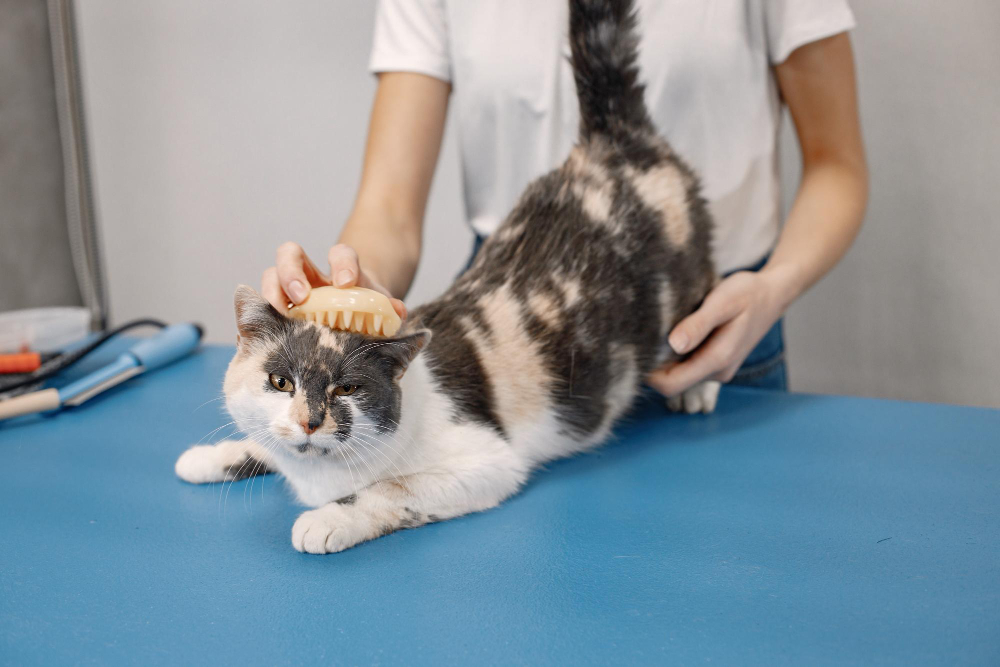
In this post, we have already covered how vital brushing your cat's fur is. But now the question arises how often you should be doing it?
How often you should brush your cat's hair depends on many factors, like the length of your cat's fur, age, medical conditions, or personality.
Important Note: Generally, brushing your furry friend once or twice a week can help maintain its coat in good condition, prevent matting, and reduce shedding.
But when it comes to long-haired cats, it is advisable to brush them daily. This will ensure that knots and tangles do not form in your long-haired cat's coat.
Conversely, short-haired cats and medium-haired cats only need to be brushed once weekly.
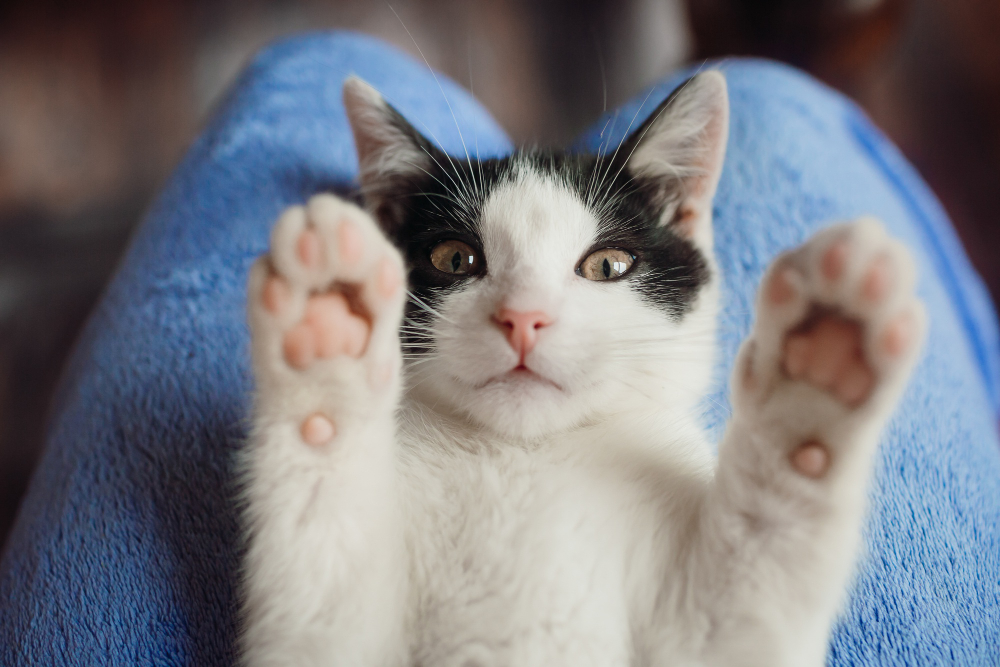
It is important to note that when your cat becomes older, it may not be able to groom itself as meticulously as it previously did. This is when the brushing practice becomes even more essential.
Arthritis can make it more difficult for older cats to groom their hard-to-reach regions. Hairballs, skin irritation or infections, and matting are all potential outcomes of this. Frequent brushing has proven to help with these problems and provide you and your older cat a chance to bond.
When you introduce brushing into your cat's routine, it is crucial not to jump in head first. Instead, gradually introduce your cat to the brush to make the procedure fun and not induce fear or anxiety in your cat.
Important Note: Acclimatizing them using a soft brush or a rubber grooming mitt is also advised rather than brushes with harsh metal bristles. Also, have a high-quality comb and brush for cats.
After they feel at ease and familiarize themselves with the practice, you can change to a brush better suited to their coat type.
It is essential to be kind. Do not pull or strain the hair. Ensure you cover the belly, armpits, and behind the ears while brushing. These places should always receive special attention because they are more likely to mat.
Final Words!
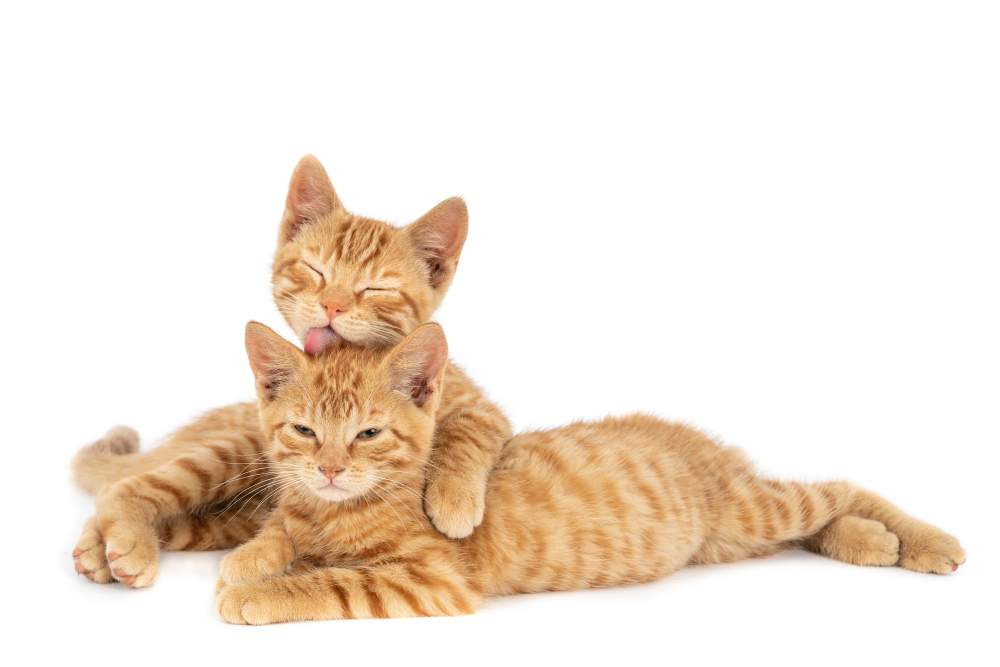
Remember, there's more to the grooming process than just keeping your cat's hair looking nice. It's also, and more importantly, about improving their health and deepening your relationship with them.
How often you should brush your cat's hair depends on its coat type, age, and overall health. While some cats only require weekly brushing, others may need daily brushing to prevent matting, shedding, or other issues.
Important Note: If you need clarification about how often to brush, consult your veterinarian or a professional groomer to determine how often your cat needs brushing. They can assess your cat's condition and provide valuable advice on the best grooming routine based on your cat's needs.
So, what are you waiting for?
Grab your cat-grooming accessories and some treats, and make grooming time a relaxing and enjoyable experience for you and your furry friend.
